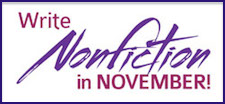 If books and blogs on how to create the perfect book proposal were key to success, I wouldn’t be shaking my head nine times out of ten when opening a query letter. I wouldn’t lose my faith in humanity a little more each day as I read things like the following—and I quote straight from my inbox:
If books and blogs on how to create the perfect book proposal were key to success, I wouldn’t be shaking my head nine times out of ten when opening a query letter. I wouldn’t lose my faith in humanity a little more each day as I read things like the following—and I quote straight from my inbox:
- “I am submitting the complete book, which speaks for itself.”
- “I am not interested in going through your submission process, as I intend to self-publish soon; however, I may just hold off if it would be beneficial to have you publish it.”
- “I am a prolific author with many contacts throughout the publishing field with mainstream books to my credit selling in excess of a million copies.”
- “I am a talented writer and author of the book X. I know that you would be interested in knowing about another perspective on how people can overcome their mental and emotional pain.”
What speaks for itself is the fact that your book is apparently not worthy of a book proposal. Between a stack of proposals and a “complete book” without so much as a cover letter, which do you think I’ll spend my time on? And, oh, you’re not interested in going through our submission process? How interested do you think I am in you? “In excess of a million copies.” Right. Sure. Sorry to break it to you, but authors who actually sell over a million copies of their “mainstream books” do not come off like this, and such statements invariably turn out to be hyperbole. Finally, please don’t presume to know what I’m “interested in.” Give me an honest pitch of your book and allow me the courtesy to decide for myself. Also, if you call yourself a “talented writer” you clearly haven’t mastered the first rule of writing, which is—all together now—Show. Don’t Tell.
Just Do It
My point is this: Stop looking for the latest tools, secret tips, tricks, do’s and don’ts on proposal writing and just write one already. You don’t need any fancy or new-fangled bells and whistles, no screechy fonts or popping visuals. Standard, calm, and straightforward does it. Content is key. Look at the agent’s or publisher’s submission guidelines and chose any one of the many step-by-step guides on this topic (such as Jane Friedman’s excellent Start Here: How to Write a Book Proposal or Annette Fix’s thorough How to Write a Nonfiction Book Proposal or purchase Nina’s own The Nonfiction Book Proposal Demystified and use her ridiculously helpful The Easy-Schmeasy Nonfiction Book Proposal Template) and follow it to the letter. Do the work. There is no shortcut to greatness—and don’t lie.
So, instead of spilling secret tricks and gimmicky shortcuts, let me offer you an honest look into the ever-hopeful, exacting, yet sensitive heart of an acquisitions editor.
Here’s What It’s Like for Us
The moment I look at a book proposal compares to the moment you first lay eyes on a blind date. You’re full of hope and dread. You hope for the best, and prepare for the worst. Your desire is to be swept off your feet by something that’s not just good, but great, unexpectedly great. But of course—and as romcoms illustrate to excess—more often than not your date turns out to be a disappointment (insert undesirable qualities in a date and they’ll apply seamlessly to book pitches: pretentious, ignorant, brazen, obnoxious, boring, sloppy, undeservedly full of themselves, etc). However, hopefully, and every once in a while, there is that one that stops you in your tracks. It can take your breath away. You like how they look (the title). You like what they’re wearing (the proposal package). They are engaging, even intriguing (the topic pulls you in, the writing grabs you by the throat).
Now as soon as there’s any promise at all, you start to mentally pitch this person to your friends and family (the publisher, the committee, the editorial review board, your sales and marketing departments). Okay, so they don’t make a lot of money (don’t have a great platform), but they sure are funny and likeable (writes well), and boy do they live an interesting life (timely, newsworthy subject). They could use a haircut (book needs copy-editing), but they are passionate and sincere (book carries palpable excitement, its contents are trustworthy, and fact-checking won’t be a nightmare).
What We’re Scared Of
My greatest fear as an editor is to be wrong. To get behind a project that turns out not to be successful, an author who ends up not following through, falling short, or turning out to be a royal pain. As you hear over and over again, committing to a book is a huge investment for a publisher, and one that frequently not only fails to make a profit, but ends up costing the press. If it does, it was my mistake as the acquiring editor, and I have to answer for it. Imagine how good it feels to lose money for your boss—not the best strategy for achieving job security, or a good night’s sleep, for that matter.
Show Us You’re Worth the Risk
So the best thing you can do as a writer is to provide your agent or acquiring editor with proof or at least well-founded assurance that you are a risk worth taking. A great, and in my experience underused ,way of doing this is to get endorsements ahead of time. Not your aunt Mary’s gushing praise, but solid, truthful statements of support by people in your field who have the relevant expertise, credentials, affiliations, and platform to mean something.
Nothing piques my interest quite like hearing from someone I already trust (or have good reason to trust) that a writer is worth considering. Like in our blind date analogy, if your trusted friend or someone whose opinion you value tells you this person is worth your time, you’re more likely to take a chance on them.
The proposal that comes with an endorsement will have the edge. Because you see, and as I’ve explained; if the book flops it’s my head on the line. Having endorsements takes the weight off my shoulders (so to speak), because if it fails at least I can say “Hey, I wasn’t just wrong but also professor X, author Y, and thought leader Z.”
Don’t Use Us
There are two reasons book proposals don’t land a contract: One, you pitched to the wrong agent or the wrong press (it doesn’t fit their interests or subject area, or they already represent/published something that is too similar or directly competes with yours), and two, your book simply doesn’t measure up: It isn’t ready for prime time, isn’t yet what it could or should be. A great book will always find a way, so if you’re getting nothing but rejections, the most likely reason is the second. Which means you’re using your agents and editors as your first source of real feedback. Don’t do that. We are not here to critique your work, we are here to get it published. If it’s not ready for publication, don’t waste our time, or yours, trying to pitch it.
The rule is research, research, research, and feedback, feedback, feedback. Work with a freelance editor, join a writer’s group, submit your work to peer review online, get other authors who write on your subject to review and critique it—whatever you need to do—just don’t, particularly as a nonfiction author, write in a vacuum. Especially if you are short on credentials and/or platform, show us at the very least that you know your stuff, that you’ve really done the work, that you’ve read and can confidently command a discussion on all the existing literature that competes with or closely relates to yours.
What To Do When You Get Stuck
Getting stuck? Talk it through with someone. Have a conversation about your book. Have someone ask you whom you really want to write for, and listen to your answer. Have someone ask you what other books you’re competing against and why yours is better. Have someone ask you how you’re going to market your book, how you’re going to build or expand your platform, and how you will promote yourself. Having a conversation with a trusted friend helps you get back in touch with your honest, unmediated thoughts about and intentions with your book, instead of staring at a blank page paralyzed by lists of do’s and don’ts.
Be Nice to Us, Please and Thank You
Finally, remember that writing and publishing is a humanistic endeavor, with emphasis on human. A kind, thoughtful, and well-presented cover letter or email goes a long way. It’s like being approached by an elegantly dressed person who introduces him- or herself in a courteous manner: you’re more likely to be taken seriously and to receive a response, one way or the other.
Also, when you receive the inevitable rejection, be polite and reply. Good manners go a long way in the publishing world, which is a small one. Trust me, writing decline letters is the hardest part of my job. Unlike how it may seem from your vantage point, we agents and editors are really on your side. We’re in this business because we love books, because we believe in books as a way of making a difference and an impact on the world. We love writers (many of us wanted to be one when growing up), and we want you to succeed. Our job is to publish books that have earned the right to shine, to sell, and to be read the world over. So take heart, and get to work!
Resources
 |
The Easy-Schmeasy Nonfiction Book Proposal Template |
 |
The Nonfiction Book Proposal Demystified: An Easy-Schmeasy Guide to Writing a Business Plan for Your Book |
About the Author
 Eliza Tutellier is Acquisitions Editor at Central Recovery Press, a publishing house committed to providing the best and most up-to-date literature on addiction treatment and recovery, behavioral health, and mind-body-spirit wellness. She can be reached at etutellier@centralrecovery.com. For more information visit www.centralrecoverypress.com.
Eliza Tutellier is Acquisitions Editor at Central Recovery Press, a publishing house committed to providing the best and most up-to-date literature on addiction treatment and recovery, behavioral health, and mind-body-spirit wellness. She can be reached at etutellier@centralrecovery.com. For more information visit www.centralrecoverypress.com.
Photo courtesy of fizkes. Amazon links contain my affiliate code.

[…] Woo Me: An Acquisitions Editor Spills All on Book Proposals – Writenonfictionnow.com […]